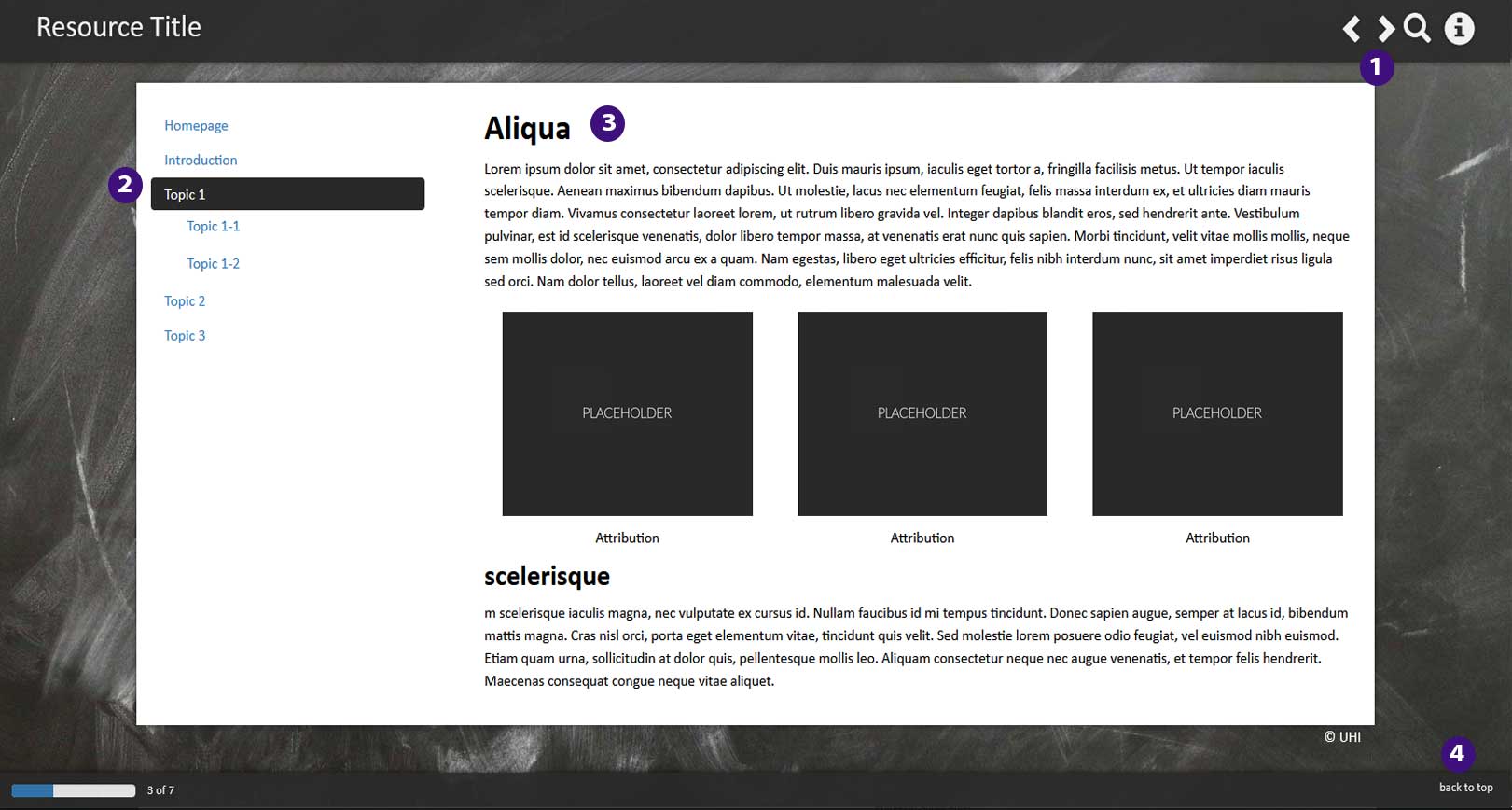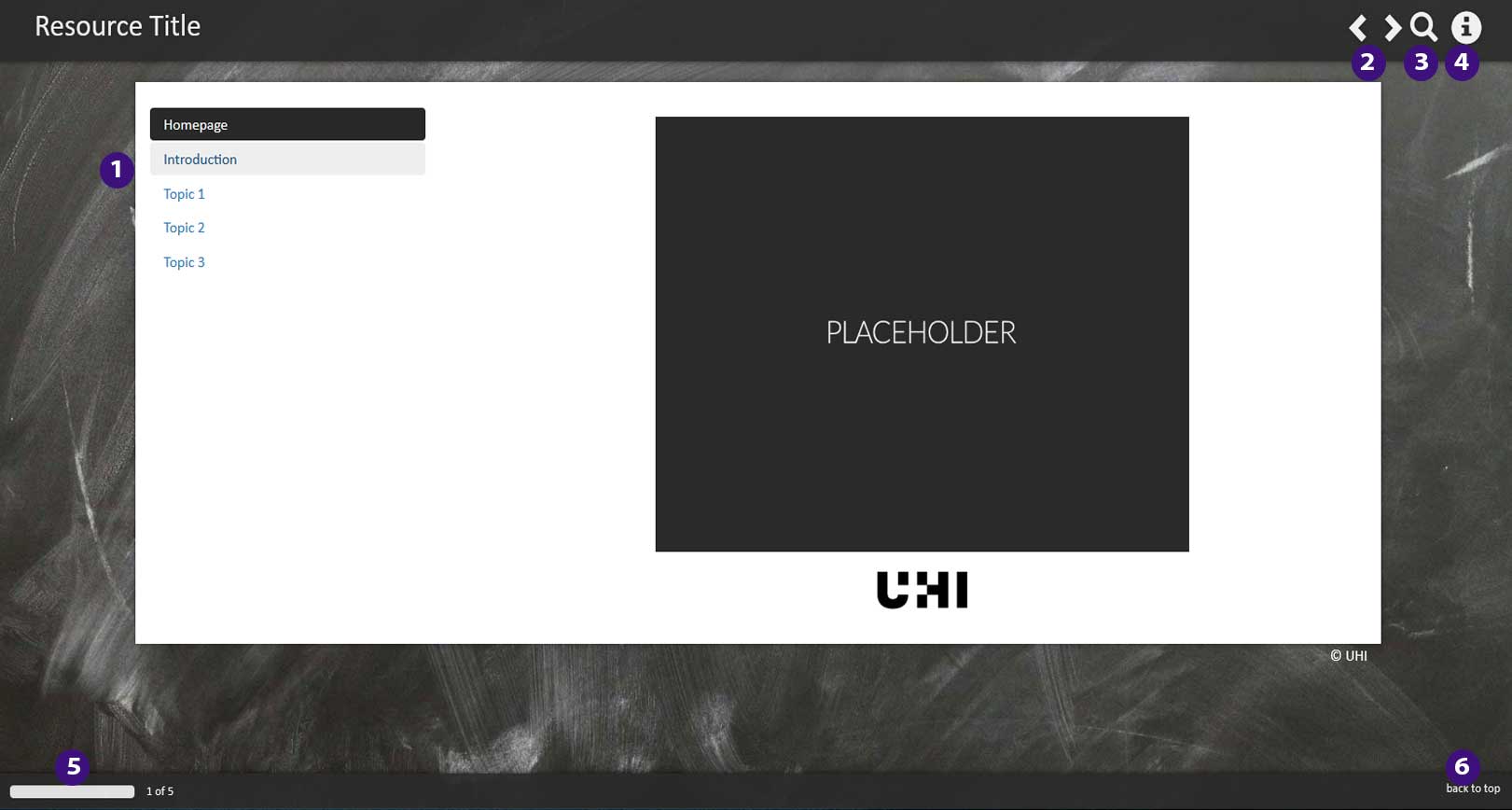Collaborative learning
UHI includes several online and blended learning courses which employ a range of innovative educational approaches (e.g. Health, History, Psychology and Sustainable Development).
For example, the UHI Geography programme employs a premier learning and teaching approach. It is quite different from the traditional, passive, in-person lecture hall (broadcast) based teaching approach (‘the sage-on-the-stage’). Instead it is a form of participatory education centred in communities of inquiry as shown in the diagram opposite.
Objectives
By the time you have completed this section of the induction you should:
- Appreciate how collaborative learning can help to develop key skills
- Understand the benefits and challenges of working in a group


Group of people connected by colour lines - Shutterstock
Why work in groups?
Quote
“Coming together is a beginning. Keeping together is progress. Working together is success” ('Henry Ford', no date)
All learners have had unique experiences, experiences that have helped shape who they are and how they think. Sharing those with others can lead to the creation of new knowledge.
Participation in group work can enhance motivation and positively affect levels of attainment and skills development on course completion (Fisher, Thompson, and Silverberg, 2004-5; Brigman and Webb, 2007; Razmerita, 2020).
It is generally accepted that well-structured group activities or projects have the ability to stimulate and promote the social and intellectual skills that employers are increasingly asking for and expect.
Based on a meta-analysis of a variety of surveys, the University of Kent have complied a list of the Top 10 Skills employers want. It is easy to see form this list that many of these skills can be practiced and perfected through group work. If you look further down the list you will also see a table of ‘other important skills’. Note that many of these are also the product of working in groups and teams.

an Attribution-NonCommercial 2.0 Generic license.
QAA Enhancement Framework
UHI is committed to helping students develop ‘graduate attributes for the 21st Century’ (QAA Enhancement Framework). These attributes include the following abilities:
- To recognise what is required in diverse situations;
- To identify and employ IT and web-based tools;
- To recognise and respond appropriately to the strengths and weaknesses of other, and;
- To work collaboratively.
Group work activities actively develop these real-world skills.
What the research says
Quote
“The ability to collaborate is often described as a quintessential 21st century skill” (Sobko et al., 2019: 37).
Drouin (2008) made the connection between social presence and a ‘sense of community’ within groups of learners, and student satisfaction and retention. Sellitto (2011) links the benefits of group work to three distinct types of student capabilities:
- experiential
- personal, and
- skills related.

Some point to the fact that online group work has the potential to enhance digital literacy and time management skills, and "may more closely mimic how diverse teams work together within and between professional organizations and hence may serve as a useful experience to prepare students for modern teamwork after graduation" (Hurst, 2020, p. 2706).
In this model the tutor's role is that of a facilitator ‘scaffolding’ and directing studies (‘the-guide-on-the-side’) and problem-solving activities. As part of the learning process students will seek out information themselves, reflect on their findings and then engage in meaningful discussions and debate with their learning group (community of inquiry) and tutors, from whom they will bounce ideas and construct knowledge from the resulting process.
The challenges of working in groups
Quote
“It is also important to recognize that ‘placing learners together does not guarantee productive collaboration’” (Chen et al., 2018; as cited in Sobko et al., 2019: 39).
There are many adages and quotes such as the one previously from Henry Ford (“Coming together is a beginning…”) that bestow recognise the virtues of group/team work however. However, it is not always plain sailing and working. Working in groups does have its challenges for both the participants and those doing the organising.
As an example, some students do not do so well competing for ‘air-time’ in a live group face-to-face or videoconference tutorial.

Challenges and Strategies
Can you think of some of the challenges faced by those working in groups/teams and some strategies to combat them?
The following page from a web site created by Carnegie Mellon University summarises several challenges associated with group work but helpfully suggests how they can be addressed.
Benefits of working in groups
Ultimately, the social constructivist approach enables learners to draw upon the collective knowledge of the group and so complements and enhances that of each individual. During problem-solving activities, as a group you will construct knowledge and develop understanding together and form perspectives that will inform your assessed work.
Quotes
A supportive (rather than competitive) learning environment based around reflection and inclusion is more suited to maximising learning, and female students, in particular, have been found to learn most effectively in such environments (Rovai, 2002; Paulus, 2006).
Multiple research studies (Ho and Swan, 2007; Palmer et al., 2008; Shelton et al., 2017; Thurber and Trautvetter, 2020; Cavatino et al., 2021) have identified a direct correlation between those students most active in collaborating with their peers with those students achieving most learning outcomes and highest final module grades.
Benefits of working in groups/teams
Can you think of some of the benefits of working in groups/teams?
The following page from a web site created by Carnegie Mellon University summarises several compelling benefits of taking part in group work.
How are teams created?
Tutors work initially to help facilitate a team of motivated learners. They will let you know what is expected of you, what you are being asked to do it and what support you should expect in order to complete the task.
Each team will then be encouraged to develop a ‘community of practice’ or ‘community of inquiry’ within their respective peer group. A deep form of understanding and learning is possible from this reflective and participatory approach if students engage to the level required.
Quote
Developing a sense that 'you are all in it together' or camaraderie (Brown 2001), is important within blended learning approaches and this requires regular communications from all participants. This camaraderie, once established, is what will ‘cement’ the success of the group. This need for the development of a ‘sense of community’ is recognised by many researchers in the field (Rovai, 2000; Salmon, 2003; Wickersham and McGee, 2008; Gerber et al., 2008; Skinner, 2009).
The mix of both on-site tutor-based learning and teaching activities, (the scaffolding for constructing knowledge), often in groups or teams (e.g. dyads and triads) complemented with online activities, will give individuals in these socialised learning communities the greatest chance of completing their studies and maximising their academic achievement.

'Four heads are better than one ' by Nic McPhee from Flickr, used under Creative Commons ShareAlike 2.0 Generic license
Case study: Teams in UHI Geography degree
Collaborative learning forms a part of a great many courses at UHI because it is a very effective way to learn and can lead to the development of highly desirable employability skills. The following information relating to the UHI Geography programme is just one example of how this might be done.

The Geography programme is designed to be rich in transferable skills or employability skills. Students are taught in small groups of up to 12-15 learners and are directed to participate in study groups in a socialised learning environment in which the tutor onsite will play a key facilitating role.
Their participation is counted towards their final module marks and as part of their study they are involved in a range of stimulating and challenging group projects which can include:
- role play
- group poster development and display
- group Wiki development
- group reports and presentations
This peer collaboration built-in to the core activities of each module is designed to engage students in developing key team building skills of benefit to the workplace. Such experience is increasingly sought after by prospective employers and is a key employability skill.

‘PowerPoint as a comic’ by Austin Kleon from Flickr, used under an Attribution-NonCommercial-NoDerivs 2.0 Generic license
Is group work assessed?
Group work can be assessed, and often is. Knowing that there are marks at stake can positively affect people’s motivation to participate:
Quote
“Assessment makes a conspicuous impact on online collaborative study” (MacDonald, 2003).
Interestingly, there is also evidence that a lack of grading can be a positive factor in the success of group work (Brindley, Blaschke, and Walti, 2008).
Examples at UHI:
As seen on the previous page, participation in group work counts towards final module marks in the UHI Geography programme.
Group work is also assessed in the BA Child and Youth Studies (Hons) programme, for example in the form of inter-professional group case studies, group evaluation of initiatives and in group discussions and peer review.
Some group work leads to individual marks (different people in the group receive different marks) while other forms lead to group marks (where everyone in the group receives the same mark).
If the group work in your unit or module is assessed, make sure you read the details of the assessment carefully, make use of the wide variety of technologies available to you at UHI and be prepared to work at being a team player. If you do, you will be developing a broad range of highly sought-after skills*: communication, co-operation, collaboration, co-ordination, leadership, and reflection to name but a few.
*Sought-after skills:
UHI’s graduate attributes brings together a set of skills that you will develop as a student at UHI – these include communication and interpersonal skills.











